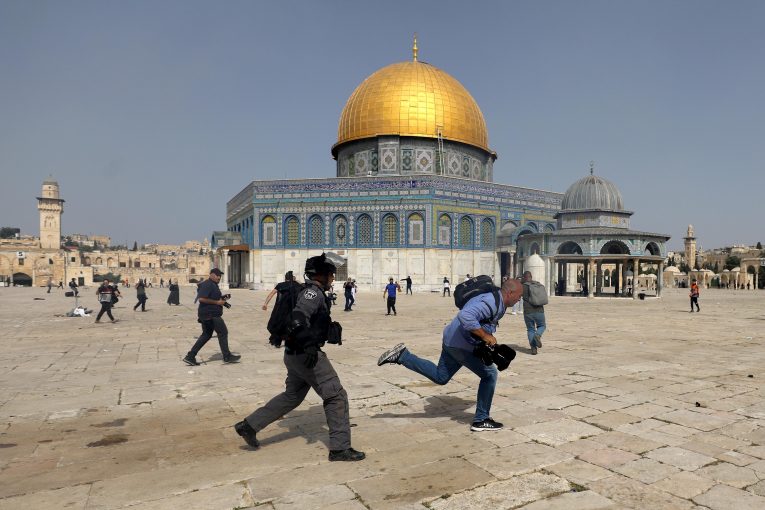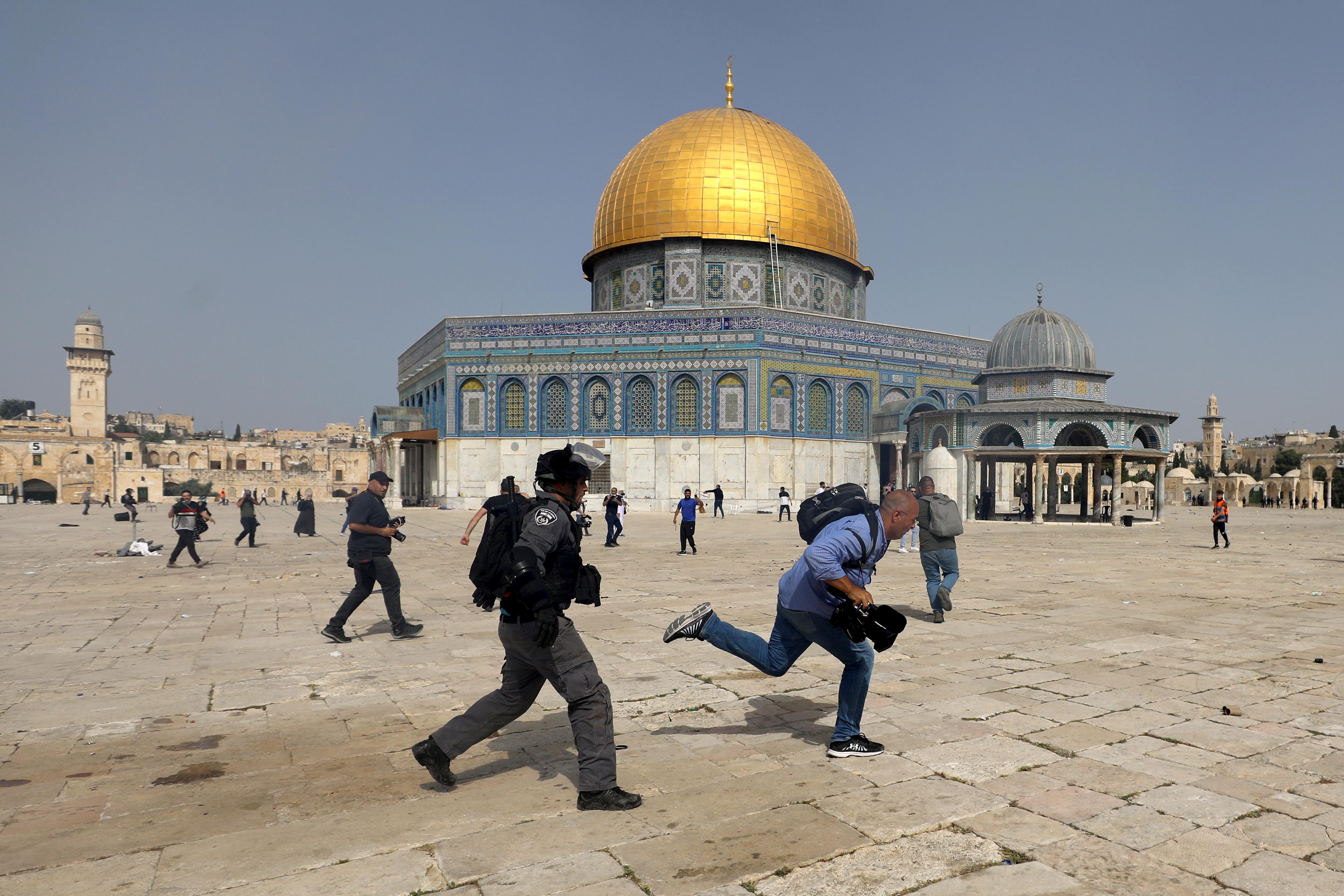

By Ibrahim Dagher
GAZA–Violence erupted this week across Israeli and Palestinian territories following a series of Israeli attacks in the Gaza Strip as well as Sheikh Jarrah.
This has been the worst flare-up of violence in the area in the last seven years, leaving hundreds of innocents dead and many more injured. Mobs have erupted––both Arab and Jewish––across Israel and surrounding countries, leaving millions in a state of paranoia.
The violent tensions began on May 7, 2021, when the Israeli Defense Force attacked a crowd of Muslim Palestinians praying at Al-Aqsa mosque in East Jerusalem, for the sacred night of Laylat-al-Qadr, a landmark night in the Islamic tradition.
Following the actions in East Jerusalem, the Israeli Defense force began airstrikes on Gaza which left approximately 220 Palestinians reported as dead, with hundreds more injured. Skirmishes between Israeli police and Palestinians broke out the next day, leaving 17 Israeli police officers dead and more than 120 Palestinians wounded. On May 10, Israeli forces again stormed the Al-Aqsa mosque and left 331 Palestinians injured.
The conflict soon evolved, though, in response to Palestinian retaliation. After the aforementioned citizen-led clashes, Hamas fired multiple rockets into Jerusalem, the first aerial attack on the city since 2014, leaving six Israeli citizens hurt.
In response, Israel sent a flurry of 130 missiles into Gaza, which has now reached a toll of 103 deaths and 508 injuries, according to the Gaza Health Ministry. Prime Minister Benjamin Netanyahu followed up the attacks by noting that the fighting would likely continue for some time, and that “whoever attacks us will pay a heavy price.”
Furthermore, the conflict is not isolated to the air. Israeli defense minister Benny Gantz recently approved an order for 9,000 additional Israeli soldiers to bolster efforts and surround the border in Gaza. Israel threatened multiple ground strikes in order to bring back control, as clashes with Palestinian innocents across the West Bank grow.
Violence in Sheikh Jarrah will likely increase, as unlike in Al-Aqsa and Gaza, clashes in Sheikh Jarrah have not been purely reactionary. The tensions in Sheikh Jarrah have been steadily growing ever since a recent court case in Israel ruled that Jewish settlers would have the legal right to evict Palestinian citizens from their current homes in the area.
Tens of Palestinians have been evicted in the legal process, and as a result fights between incoming Israeli soldiers this week and Palestinian civilians erupted. Palestinians view the court decision and violent responses of Israeli soldiers as part of a larger plan to evict and annex the entirety of the Palestinian territory. These efforts, though, have been halted in light of the casualties in other areas.
An especially important part of the present conflict in Israel and Palestine is not only the high number of casualties and injuries ensued but the fact that the flaring tensions will likely spread to other parts of the tumultuous Middle East region. For example, three missiles from Southern Lebanon were reported by The Jerusalem Post to have hit Israel on May 14, although no casualties were indicated.
Israeli archenemy Hezbollah was suspected of the attack, but the group soon denied any linkage to the incident. Another Israeli enemy in the region, Iran, heavily criticized the uptick in violence, with Saeed Khatibzadeh, Iran’s Foreign Ministry spokesman, saying that, “The Islamic Republic of Iran categorically condemns the attack on Al-Aqsa Mosque, the first Qibla of Muslims, and the killing and wounding of Palestinian worshippers by Israeli forces on the last Friday of the holy month of Ramadan which marks the International Quds Day.”
The Middle East is a highly volatile and sensitive region, where political upheavals and violence are never far off. The violence in Israel and Palestine that has characterized the past week will only serve to increase political uncertainty across the region. With no end in sight, this week’s events play a causal role in cross-national tensions between Israel and surrounding Arab states. In other words: the worst has yet to be seen.
Ibrahim Dagher is a first-year Philosophy major and Political Science minor at UC Davis from the Central Valley. His interests include writing professional analytic philosophy and engaging in public speaking events.